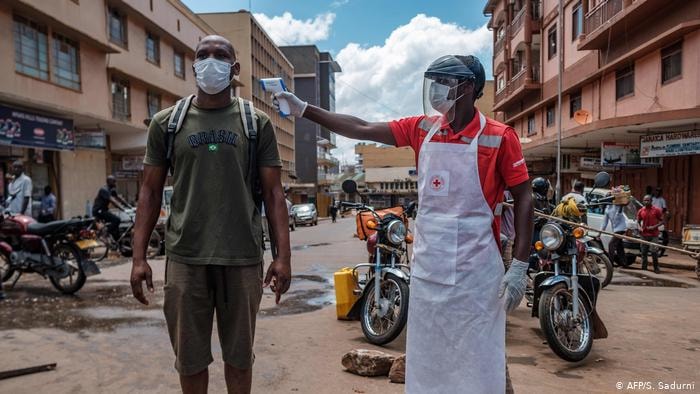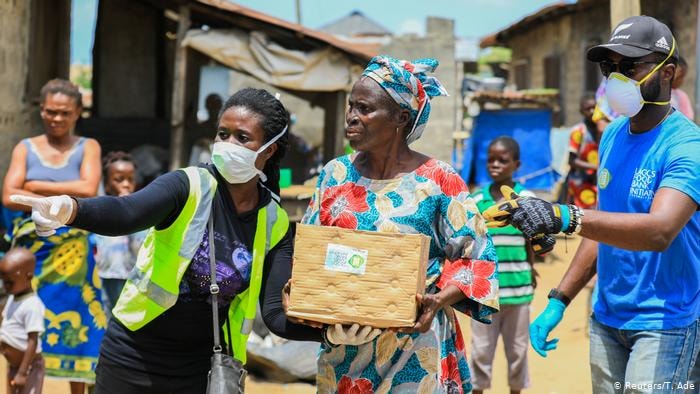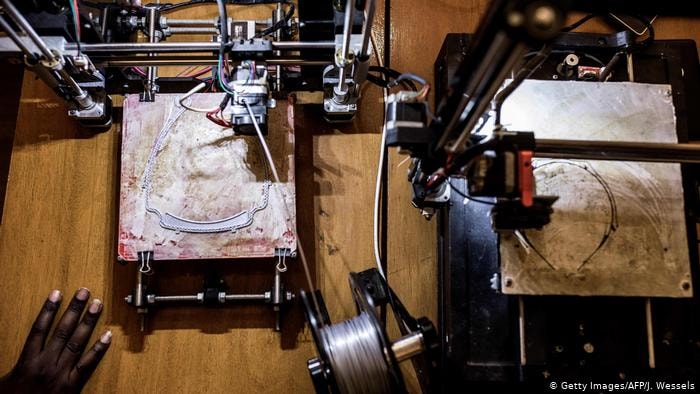Covid-19: What can the world learn from Africa?
(Baonghean) - The number of cases of the new strain of Corona virus (Covid-19) on the black continent is on the rise, and with it comes fear and anxiety about the possibility of a disaster. However, it cannot be denied that Africa possesses a huge amount of knowledge in dealing with and responding to infectious diseases. This is something that industrialized countries probably need to learn.
The continent is not vulnerable
According to DW, the global crisis called the Corona virus is also causing major urban centers in Africa to fall into a state of paralysis. For example, in Johannesburg, the economic capital of South Africa, the army has been deployed to monitor the implementation of curfew regulations. Meanwhile, in the equally vibrant capital Kampala of Uganda, markets and shops are still closed. Only a few boda boda (rickshaws) occasionally run back and forth on the streets. These motorbikes are no longer allowed to carry passengers, but are instead used to carry out delivery services and run errands during the pandemic. Life is also moving more slowly in other cities on the black continent. If any semblance of "normal" is to return to existence, it is imperative that the Covid-19 pandemic be contained as soon as possible.
 |
| Life in Uganda's capital Kampala has changed dramatically due to the Covid-19 pandemic. Photo: AFP |
According to Ahmed Ogwell Ouma, Deputy Director of the Africa Centers for Disease Control and Prevention (Africa CDC), this is exactly what some African countries can benefit from. The health expert did not hesitate to praise the quick and timely action of governments on the black continent: “This is a lesson we learned during the Ebola crisis in Africa in 2014. We intervened quickly, with proven means, knowledge and social partners in the communities…”. During a recent online discussion on the topic “Covid-19 - First Lessons from Africa”, Mr. Ouma emphasized that this has contributed to keeping the infection rate in Africa so far low.
Despite these initial successes, the World Health Organization (WHO) has warned that Africa could be more affected by Covid-19 than other regions in the world. However, objectively, the continent is not a “victimless” and vulnerable to the pandemic as many people mistakenly believe. Sharing this view is Robert Kappel, professor emeritus at the Institute of African Studies at the University of Leipzig: “We have learned a lesson. In addition, in our perception of Africa, this continent is not a continent of pandemics, health and economic crises. Africa is a continent that takes matters into its own hands, in very different ways.”
For Gavin Churchyard, president of the Aurum Institute, a healthcare institute in South Africa, social distancing and infection control, which have been extremely effective in the “time of Covid-19”, are not new concepts to the African community, but are due to the long-term fight against tuberculosis here. Even with just a little modification, existing teaching materials on tuberculosis and HIV/AIDS can be used in the current fight against Covid-19. Churchyard asserted: “In contrast to some industrialized countries, African countries have chosen scientifically sound solutions. We have seen leadership emerge in African countries, unlike anywhere else.”
 |
| Medical volunteers in Lagos, Nigeria help distribute food to people on the streets. Photo: Reuters |
Seeing opportunities in challenges
Professor Kappel has high praise for the local commitment to innovative small and medium-sized companies. He says that these companies have become important players in the production of medical products such as masks, disinfectants, etc. “There is also a lot to learn from the trust in local intelligence that is always present in African countries,” Kappel says. And in fact, many startups also receive some support from the state, thereby encouraging them to play an important role in providing medical equipment to the people.
Africa’s success in the fight against Ebola and other infectious diseases shows that it’s not always about receiving large amounts of international aid or huge sums of cash. Of course, there’s no denying that these are essential if cases rise and the crisis gets out of hand. So far, it appears that in the early stages of the Covid-19 crisis, local communities, civil society organizations, and village leaders across the continent have been working to limit the spread. Another advantage is that the virus arrived in Africa relatively late compared to other places, giving the continent more time to prepare for a better response.
 |
| Senegal is pioneering simple and economical solutions such as 3D printers that produce masks. Photo: Getty |
That Africa is not a hopeless continent was recently highlighted in two open letters by scholars from the black continent, including well-known names such as Senegalese writer and composer Felwine Sarr, Cameroonian political scientist Achille Mbembe and Nigerian Nobel Prize winner Wole Soyinka. In the letters, they ask that Africa must come up with “a fundamental, strong and sustainable response to a real threat that should not be exaggerated or minimized, but addressed properly”. They call on governments to take advantage of the current situation to emerge stronger from the crisis. To do so, perhaps the first prerequisite is to “transform” health systems, promote local raw material processing industries, and diversify the economy./.

